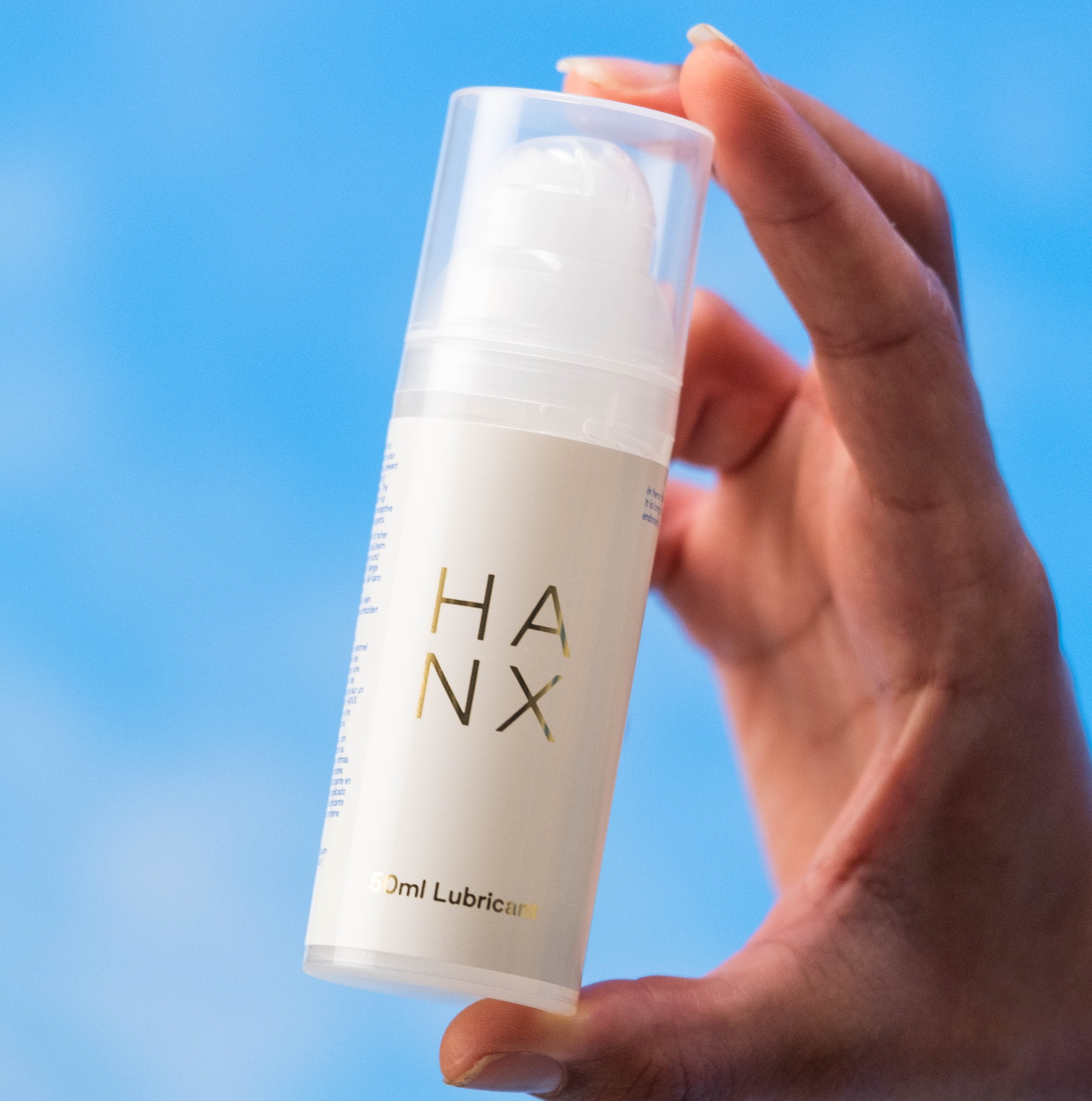How To Manage Menopausal Weight Gain
It’s often nicknamed ‘The Change’ but really, we should look at menopause as an evolution in our health journey. As we transition through both perimenopause, we go through a myriad of changes, both physiological and emotional. Amidst these transformations, weight fluctuation is a common experience - one study shows that women gain around 5lb at this time. However, many menopause conversations focus on hot flushes, brain fog and fatigue, despite weight gain (or loss) often bringing more challenges.
Our Co-Founder, Dr. Sarah Welsh, spent 10+ years working in the NHS. She recalls feedback on this very topic from patients:
“Weight gain and difficulties resulting from this would come up again and again when speaking with women going through their menopause journey. For many women and people going through menopause, this change in weight can create further health complications and has a lasting impact on their self-esteem and sex life. This can be very difficult to navigate and we really aim to support the HANX community through this transition.”
Are you seeing changes to your weight during perimenopause? Join us as we explore the intricate relationship between weight and menopause, shedding light on how maintaining a healthy weight can profoundly impact our wellbeing and ease the journey through this significant life stage.
The Weight-Menopause Connection
“Weight has a significant influence on hormonal balance, metabolic health, and overall well-being during menopause. Both excess weight and being underweight can disrupt hormonal equilibrium and exacerbate symptoms associated with menopause.” - Dr. Sarah Welsh.
-
Excess Weight in Menopause:
According to the British Menopause Society, 50% of women report weight gain during menopause - and you might be wondering why. Excess weight, particularly obesity, is closely linked to hormonal imbalances commonly observed during menopause. Adipose tissue serves as an active endocrine organ, secreting hormones and inflammatory molecules that can disrupt the delicate balance of oestrogen and progesterone characteristic of the menopausal transition. Put simply, these hormonal changes mean your body stores more fat and burns calories far less efficiently.
As a result, those who are obese may experience more severe menopausal symptoms, including hot flashes, night sweats, mood swings, and sleep disturbances.
Obesity is also associated with an increased risk of chronic conditions such as cardiovascular disease, diabetes, and hypertension, which can further exacerbate menopause-related health concerns and reduce overall quality of life.
Additionally, excess weight can contribute to joint pain and mobility issues, exacerbating discomfort and reducing physical activity levels during menopause.
-
Being Underweight in Menopause:
Being underweight can also pose challenges during menopause. Those with low body weight may experience hormonal imbalances and deficiencies in oestrogen even more, leading to early menopause onset, and increased risk of osteoporosis and bone fractures.
Underweight people may also be more susceptible to experiencing cognitive changes and mood disturbances associated with hormonal fluctuations during menopause.
The Role of Weight Management in Menopause:
Achieving and maintaining a healthy weight is paramount for mitigating menopausal symptoms, reducing the risk of chronic diseases, and promoting overall well-being. We spoke to Dr. Sarah on how being conscious of weight, and focusing on living well and healthily, can be a great support through the menopausal transition:
Balanced Nutrition
Adopting a nutrient-rich diet comprising fruits, vegetables, lean proteins, whole grains, and healthy fats can help regulate hormonal fluctuations, improve metabolic function, and alleviate menopausal symptoms. Including foods rich in calcium and vitamin D is especially important for supporting bone health during menopause. The British Nutrition Foundation recommends a Mediterranean diet, not just for menopause, as it has multiple benefits including reducing the risk of heart disease. Pass the Greek salad!
“Limiting intake of processed foods, sugars, and unhealthy fats is crucial for supporting weight management and optimising overall health.” - Dr Sarah.
In fact, a 2023 study showed that phytoestrogen-rich foods such as soy products, flaxseeds, and legumes may help alleviate menopausal symptoms by exerting mild oestrogenic effects in the body. Time to try Dr Sarah’s fave smoothie: strawberries, banana, soy milk, and flaxseed!
Regular Exercise
Engaging in regular physical activity not only helps with weight management but also has massive benefits for your cardiovascular health, strengthens bones, and alleviates stress and mood disturbances commonly experienced during menopause. NHS guidelines for healthy adult women are 150 minutes a week of moderate exercises or 75 minutes per week of vigorous aerobic activity, alongside muscle-strengthening workouts twice a week. Yes, we hear you - it might feel like a big ask when you’re exhausted by persistent insomnia, or anxiety which makes it difficult to get out of the house. Start slowly, and aim to get moving with a nice variety of aerobic exercises e.g. swimming, running, long walks, strength training, and flexibility exercises. It’s really important in menopause to prioritise weight-bearing exercises to support bone density and reduce the risk of osteoporosis.
Plus: activities such as yoga and tai chi can improve balance, flexibility, and mental wellbeing, all of which are really important.
Stress Management:
Chronic stress can exacerbate menopausal symptoms and contribute to weight gain. Try to make time for stress-reducing techniques such as mindfulness meditation, hypnotherapy resources such as Clementine app, yoga, deep breathing exercises, or professional counselling/therapy as this can help manage stress levels and improve overall well-being. Whether self-care looks like watercolours, 30 minutes with a new book or simply sitting quietly in the garden, time for yourself - and relaxation practices - promote emotional resilience and can really enhance coping mechanisms during menopause.
Professional Guidance
You don’t have to muddle through menopause on your own. As awareness of the impact of menopause grows, it’s far easier to find women’s health experts, coaches or advocates who can be really helpful and supportive as you navigate ‘the change’. Whether you’re looking for advice on menopause management, rethinking nutrition to meet your body’s changing needs, or a helpful ear to chat through the changes, there are amazing experts out there who can provide personalised guidance and support tailored to your needs and goals.
Similarly, emerging advancements in medical science offer really exciting additional support for those navigating weight management challenges during menopause. GLP-1 medications, such as Mounjaro (tirzepatide) and Wegovy (semaglutide), are promising options for aiding weight management efforts, alongside a balanced diet and increased exercise. These medications work by targeting appetite control centres in the brain, reducing food cravings, and promoting feelings of fullness, leading to significant weight loss in clinical trials.* For women struggling with obesity or weight-related health concerns during menopause, incorporating weight management medication into a comprehensive treatment plan may offer an effective strategy for achieving and maintaining a healthy weight.
If you do experience weight fluctuations during and post perimenopause, it’s important to make sure you’re taking part in regular health check-ups to monitor your metabolic health, bone density, and overall wellbeing at this time.
Optimistic Future
Menopausal weight gain can be tricky to navigate but there are many options to help. By prioritising healthy lifestyle habits including balanced nutrition, increased exercise, stress management, and if suitable, weight management medication, you can set yourself up for sustainable, long term health.
Want more?
- Discover the weight management programme at HANX and start your consultation today. Curious about pricing? Here's our guide.
- Our in-house gynae answers your most-asked questions on menopause here.






















